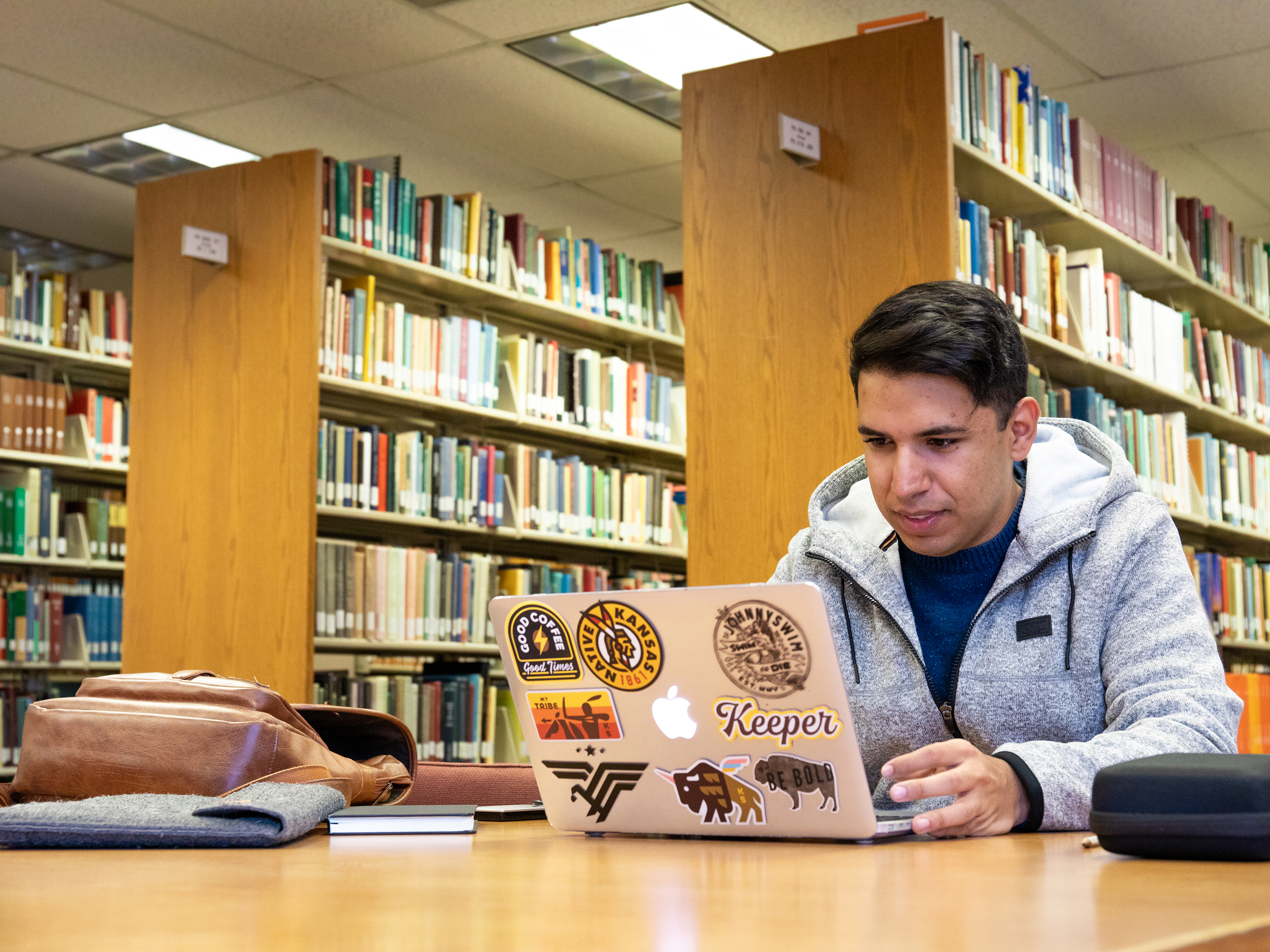Basic Costs for Graduate Studies
The current tuition and fees are subject to change by the action of the Kansas Board of Regents or the state legislature. Please visit the link below for specific tuition and fee costs.
Tuition Payment
Tuition and fees are required to be paid each semester, either as one full payment or by setting up a payment plan with Financial Operations.
Graduate Tuition
Below are estimated expenses for the 2023-24 academic year. Please note that tuition generally changes from year to year, and the rates below may not be applicable to the semester you enter WSU.
| Student Expenses | Semester | Fall & Spring |
|---|---|---|
| Kansas resident tuition — 9 hours (full-time) $326.15 per credit hour |
$2,935.35 | $5,870.70 |
| Nonresident tuition — 9 hours (full-time) $801.01 per credit hour See if you are eligible for a tuition discount. |
$7,209.09 | $14,418.18 |
| Required student fees — 9 hours (full-time) Usage of recreation center, access to student athletic tickets, health services and other student services. Online students are exempt from many of these fees. Please see the Tuition and Fees page linked above for specifics. Specific program and college fees are not included here. |
$903.68 | $1807.36 |
| Online tuition — 6 hours (part-time) $326.15 per credit hour |
$1,959.90 | $3,913.8 |
|
Shocker Select, Midwest Student Exchange, and Global Select eligible students - 9 hours (full-time) |
$4403.16 | $8806.32 |
International Students
Below are cost estimates for both the 12-month calendar year and nine-month academic year. These estimates include nine hours of enrollment for fall and spring each; and for the 12-month estimate, six hours of enrollment for summer — all at the nonresident tuition rate. These amounts do not include required housing and meal expenses for any dependents arriving with the student.
This amount must be shown on financial support documents before an I-20 will be issued and a final admit decision will be provided.
| Description |
Academic Year |
Calendar Year |
|---|---|---|
|
Tuition and fees |
US $18,500* |
US $24,400* |
|
Housing and meals |
$8,700 |
$11,500 |
|
Books and medical insurance |
$3,600 |
$4,500 |
|
Total |
US $30,800 |
US $40,400 |
*Effective Fall 2016, the MBA program is assessed at the Kansas Resident tuition rate, regardless of the student's residency status. For the MBA program, the above tuition and fees figures would be $10,000 ($22,300 total) for the nine-month program and $12,200 ($28,200) for the 12-month program.
Important Notes
The above figures for international students are estimates and are subject to change.
Approved Sources of Funding:
- Checking Account
- Savings Account
- Money Market Account
- Certificates of Deposit
- Current Account
- Fixed Term Deposits
- Loan (Bank Letter must list maximum amount of loan)
- Graduate Assistantship
Not Accepted Sources of Funding
- Stocks, Bonds, or Mutual Funds
- Real Estate
- Personal Property (jewelry, car, etc)
- Pension or Retirement Funds (unless bank letter shows funds are immediately available to withdraw for educational purposes)
- Lines of Credit (generally not accepted but considered on a case-by-case basis)
- Pay Stubs
- Credit Card Accounts
- Affidavits of Support
Summer Enrollment
Summer enrollment is optional. However, if the summer session is the student's initial semester of enrollment, summer session enrollment is required during the student's first year.
Medical Insurance
International students are required to have medical insurance. If students do not have medical insurance when they arrive, medical insurance may be purchased at the university.
Additional College or Course Fees
There may be additional fees assessed for specific courses or academic colleges, such as engineering and business.
Visit the link below for details on additional fees.
Personal Expenses
Students should bring extra money for personal expenses (such as movies, museums, shopping, etc).
Housing
Actual housing expenditures depend on:
- Whether the student lives on campus, and at which residence hall if the student does choose to live on campus.
- Whether the student has a roommate.
- The student's meal plan, if living on campus.
Tuberculosis Prevention Program
Students are required to have a tuberculin skin test upon arrival.


